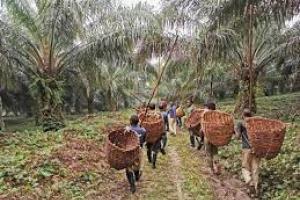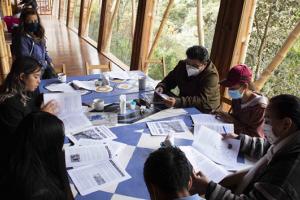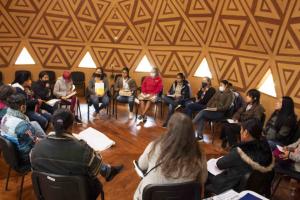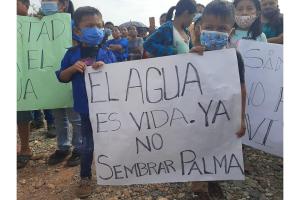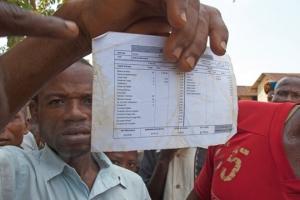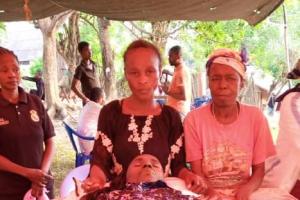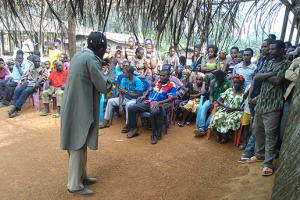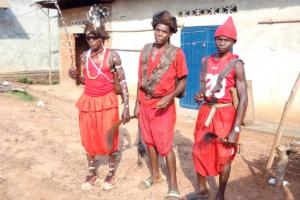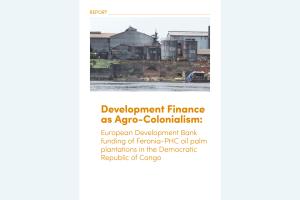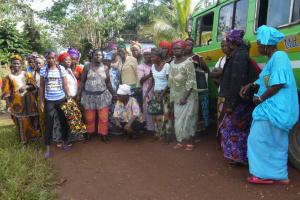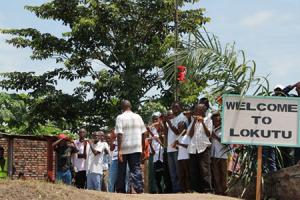Palm Oil
The oil palm tree is native to West Africa. It is an important tree for forest-dependent communities, their cultures and their economies. However, large-scale oil palm monocultures for industrial production (oil and agrofuels) have been driving deforestation and land grabbing in Southeast Asia. More recently, oil palm monocultures are also driving destruction in Africa and Latin America.
(Only available in French) Polices et militaires tirent à balles réelles sur des ouvriers de la Société FERONIA/PHC en grève à la plantation de Boteka.
One of the main causes of deforestation in Mesoamerica is the expansion of oil palm monoculture. An exchange of experiences brought together representatives from indigenous and peasant communities to coordinate their resistance.
Only available in Spanish.
The Palmas del Ixcán company has used multiple tactics to grab land, as well as a deceptive RSPO certification process and the use of “independent producers.” Despite criminalization of communities, their resistance grows ever stronger.
Available only in French.
A young man was killed and other people are still in prison. It was after a protest against the failure of the PHC company to provide local communities with any benefits after 100 years of illegally occupying their land.
Communities in West and Central Africa are facing the impacts of industrial oil palm plantations. With the false promise of bringing ‘development’, corporations, backed up with government support, have been granted millions of hectares of land for this expansion.
RIAO-RDC and international NGOs calls for the immediate release of community leaders and villagers from the communities of Mwingi, Bolesa and Yanongo who were arrested after a peaceful protest against the palm oil company PHC. An urgent action alert is open to sign-ons.
The report details abuses faced by communities affected by industrial oil palm plantations managed by the Congolese company Plantations et Huileries du Congo (PHC).
European development banks have financed a plantation company in DRC that is built on injustice and violence dating back to a colonial-era land grab. When the company went bankrupt in 2020, the banks chose to uphold the plantation model.
